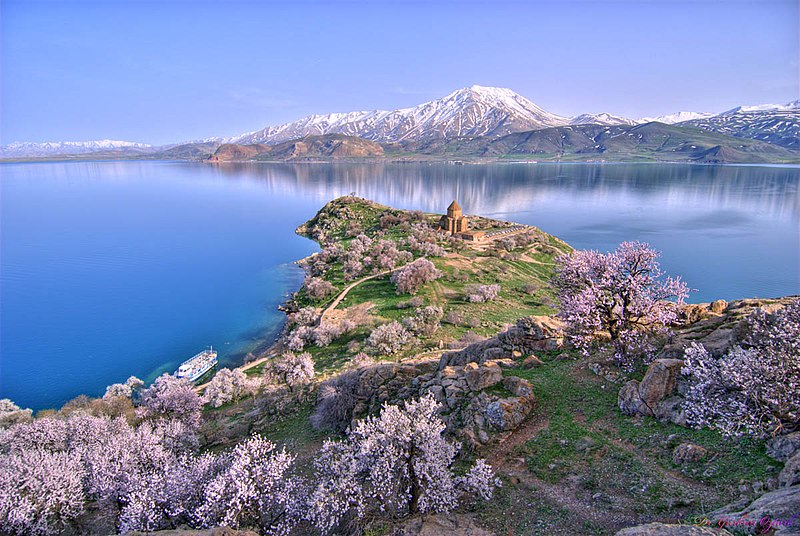Turkey’s parliamentary campaign debate about the government’s treatment of ethnic minorities prompted hope among the country’s ethnic Armenians, its largest non-Muslim minority, that greater tolerance could be in the wind. But as Turkish-Armenians take stock of their situation post-election, a mood of caution still prevails.
Only some 300,000 ethnic Armenians are believed to have remained in Turkey after the 1915-1918 massacres of ethnic Armenians by Ottoman Turks. Today, most members of Turkey’s estimated 50,000-strong ethnic Armenian community reside in Istanbul; a tiny minority of ethnic Armenians, who converted to Islam, live in the regions of Tunceli and Artvin.
Diaspora Armenians may think first of genocide recognition when Turkey comes to mind, but for those Armenians who live in Turkey, another issue carries equal importance – seeing an ethnic Armenian elected to Turkey’s parliament.
With a nose out for votes, two opposition parties – the Kemalist Republican People’s Party (CHP) and the National Movement Party (MHP) – earlier had planned to include two ethnic Armenians among their candidates in Turkey’s June 12 parliamentary elections. An uptick in nationalist rhetoric, however, prompted them to abandon such plans, some observers say.
The ruling Justice and Development Party (AKP) performed a similar about-face with wealthy Turkish-Armenian businessman Bedros Sirinoglu. In 2007, the AKP had been the primary choice for Turkish-Armenian voters who hoped that the party would carry through legal reforms that would allow the return of property confiscated from ethnic Armenians, said Margar Yesaian, a columnist for the Taraf daily newspaper.
Turkey and Armenia’s failed attempt to patch up the past, though, prompted many ethnic Armenian voters to change their loyalties, commented Marmara University’s Pagrat Merinoglu, an ethnic Armenian professor of computer engineering. “Erdoğan’s government broke all our hopes for the reconciliation process,” Merinoglu said.
Instead, “[t]his time, Armenians have placed their faith in independent candidates who declared their willingness to support ethnic minorities,” said Aris Nalci, an editor at Agos, an Istanbul-based Armenian newspaper.
Two days after the vote, whether that faith will be justified remains unclear. Some observers, though, say that the lack of an ethnic Armenian parliamentary deputy only feeds the Turkish-Armenian community’s feelings of isolation.
“The main issue for Armenians here has always been and still is the fact that they are not viewed as rightful citizens of the Turkish state,” said Ozge Genc, a manager of the Turkish Economic and Social Studies Foundation’s Democratization Program. “And Armenians are often treated with greater distrust than all other Christian minorities here.”
Armenians in Turkey are often portrayed as traitors who committed atrocities against Turks during World War I and sided with Russia against the Ottoman Empire. As a result, many ethnic Armenians have taken Turkish surnames and say that they avoid speaking Armenian in the streets. That wariness extends to politics and the Turkish civil service, Genc continued. “They have to go through a security check, and, as a result, Armenians . . . are not represented in the political field and public sectors.”
That trend has slowly begun to change. Non-Muslims have been allowed to hold official posts in Turkey since 1965. Fearing discrimination, few ethnic Armenians, though, have applied for such jobs. A marked exception occurred this March when Turkey’s Secretariat-General for European Affairs offered an advisor post to an ethnic Armenian; the offer made headlines in Turkish media.
Later that month, Ankara appointed Turkish-Armenian economist Daron Acemoglu, a two-time Nobel Prize nominee, as its ambassador to France.
Breaking the Armenian community’s tradition of silence has been a challenge, but the 2007 murder of ethnic Armenian journalist and Agos Editor-in-Chief Hrant Dink proved a turning point, noted Professor Arus Yumul, the Turkish-Armenian head of the sociology department at Istanbul’s Boğaziçi University. “It’s as if Hrant Dink’s death woke us up and made us remember our identity and not be afraid of being Armenian,” he said.
An ongoing trend of mixed marriages has contributed to that process. A decade or two ago, marrying an ethnic Turk would have been considered shameful for an ethnic Armenian, Yumul said. “Now, it is viewed almost as something normal. There is no confrontation on this issue, which means that the next generation will be more of a hybrid, and will be able to chose its ethnicity.”
Meanwhile, some signs indicate that many Turks, too, are taking a fresh look at relations with Armenians. Thousands of ethnic Turks took to the streets to protest the death of Hrant Dink, and protests and other events were staged in Istanbul this April to commemorate the deaths of hundreds of thousands of ethnic Armenians in the World-War-I-era massacres.
But the process of reconciliation is far from smooth. Silva Kuyumcuian, the principal of Getronagan, Istanbul’s oldest Armenian lyceum, charges that the Turkish government uses ethnic Turkish deputy principals to ensure that Armenian history is not taught and that more Armenian language classes are not offered in Turkey’s 16 Armenian schools.
“Of course, we are very cautious, and, for now, that’s the only right policy since we are trying to survive and not lose our students,” Kuyumcuian said.
But rather than silence and caution, some argue that the ethnic Armenian community’s best hope for the future lies in Turkey’s ongoing attempts to build political pluralism. “[O]nly that way can minorities’ problems be solved…,” said Taraf columnist Margar Yesaian. “A step toward democratization has been made, so we hope for more developments.”
Gayane Abrahamyan is a reporter for ArmeniaNow.com in Yerevan.


Leave a Reply